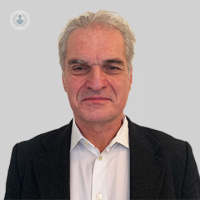Lifestyle medicine
Dr Tatyana Lapa-Enright - Aesthetic medicine
Created on: 10-27-2022
Updated on: 12-11-2023
Edited by: Conor Lynch
How is lifestyle medicine defined?
Lifestyle medicine is a branch of medicine which aims to prevent, limit or reverse health problems where possible by improving a patient’s lifestyle, rather than by using medication or surgical treatment. It is an evidence-based branch of healthcare which is informed by research about how our lifestyles affect our overall health and our likelihood of developing otherwise preventable health problems.
Lifestyle medicine practitioners help to educate patients on key areas which can impact our health so that they can make adjustments to their lifestyle to improve their quality of life and general health. Using this approach, patient care may centre around dietary changes, planned physical activity or exercise, changes to sleep or social habits or the implementation of stress management tools, amongst others.

Which factors are involved in lifestyle medicine?
The aim of lifestyle medicine is to optimise habits and routines in areas of daily life in which some behaviours can contribute negatively to our health. In this way, lifestyle medicine looks to make positive changes in order to avoid preventable health issues.
There are a number of aspects of day-to-day life and personal habits which a lifestyle medicine practitioner may examine in order to make recommendations to improve overall health and prevent the onset of some health conditions. These factors may include:
- nutrition, specifically the consumption of ultra-processed foods
- physical activity habits or patterns of inactivity
- stress
- smoking and the consumption of alcohol or recreational drugs
- social connections and support
Lifestyle medicine practitioners provide highly individualised recommendations and care plans for each patient, aiming to optimise health through improving daily routines and eliminating some habits which can be detrimental. Another key area of lifestyle medicine is the fostering self-care practices which help to boost a person’s wellbeing and encourage positive social connection.
As lifestyle medicine is highly dependent on a patient’s individual aims and daily lifestyle, care plans can vary greatly. However, some recommendations are more generally advised, including following a healthy, balanced diet, avoiding ultra-processed foods, partaking in regular physical activity and maintaining a regular sleep schedule.
Using this holistic approach, lifestyle medicine interventions not only improve a person’s overall health and wellbeing but can also help to prevent the onset of some conditions, or even reverse conditions such as type 2 diabetes or cardiovascular disease.
Which type of doctor practises lifestyle medicine?
Dedicated GPs and lifestyle medicine practitioners offer specialist lifestyle medical care.







